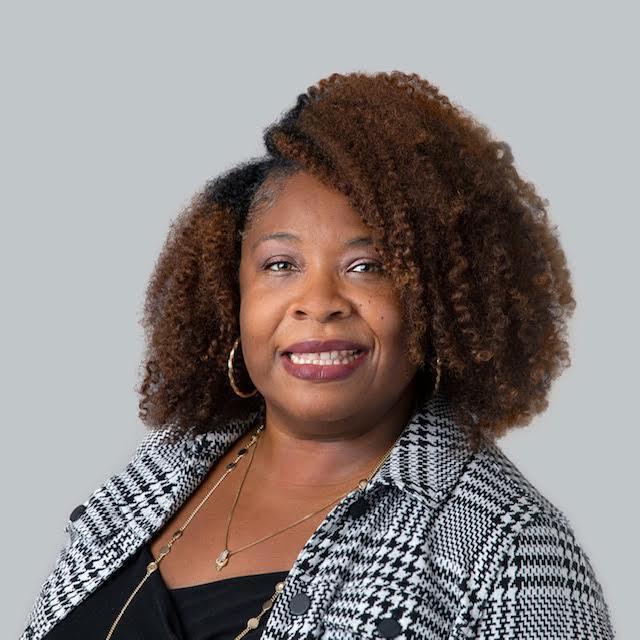A revolution in consciousness awaited Cynthia Larkin when she left the Great Central Valley town of Tracy, California, and arrived at San Diego State University. After four years at Tracy High, where she was one of a handful of Black students, she enrolled in Dr. Charles Toombs’ African American literature class at SDSU and woke to “the Black experience in education.”
“I didn’t enjoy myself very much at Tracy High School,” she said. She knew she had to get away, and headed to San Diego State University. “I knew very little of the Black experience and culture when I arrived in San Diego.”
After encountering Dr. Toombs, she realized almost immediately that she wanted to be a role model for African American children. “This is what I was meant to do. I wanted to do what Dr. Toombs was doing and actually thought about becoming a professor.” But she soon discovered that she really connected with high school students.
Her sense of mission would animate her entire career in education. She started living her dream in her first teaching job, which was at Morse High School in the San Diego Unified School District, where she developed a course called “American Literature through the African American Perspective.” The new course landed her on the cover of "California Educator." Readings included Zora Neale Hurston’s Their Eyes Were Watching God, Richard Wright’s Native Son, Harriet Jacobs’ Incident in the Life of a Slave Girl and The Life of Frederick Douglas, An American Slave. She is proud to say the course is still being taught at Morse, where she has been principal since 2017. She came back home to Morse after several years as vice principal at San Diego’s Clairemont High School.
Today, she is Dr. Cynthia Larkin, having earned her doctorate in educational leadership at San Diego State University. It is now a given that diverse literature classes are staples of the curriculum at Morse, where the majority of students are Latino, Filipino and Black. She is an equity-minded leader who deeply believes this is the kind of curriculum that makes American history and literature much more meaningful to diverse students.
This May 12, Cynthia will be presented with the Lighthouse Award from the San Diego County Office of Education (SDOCE) as a tribute to her work as a turnaround school site leader heading an equity team focused on an awareness of systemic racism. The work can be humbling for all concerned, she pointed out.
“I began to realize that even I fell into systemic racist behaviors,” she said. “As a staff we opened the door to very hard conversations. Our motto was ‘Look in the Mirror, and not Outside the Window’ and, believe me, I had to look in the mirror, too. Some staff pushed back and it did not feel good. Leading equity work can be challenging, and it’s not the kind of work that is ever complete. It’s a continuous process.”
But without the pain, there would be no progress. She is particularly pleased to note that “Our students began to find their voices.” She is also gratified that the equity work kept up right through the pandemic. “All the time we were teaching online, we kept up with the work. COVID didn’t stop us.”
Earlier, on May 7, Cynthia will be honored with the Secondary School Principal of the Year Award given by the Association of California School Administrators (ACSA), which recognizes administrators who have succeeded in providing high-quality learning opportunities for students as well as in demonstrating exemplary contributions to the profession.
Her parents, John and Barbara Larkin, will be present for that ceremony. John Larkin worked for Chevron, and it was a promotion from that company that brought the family from diverse San Francisco to the very homogenous town of Tracy. Barbara’s job in San Francisco and Tracy was raising the children—eight in total, including six adopted by the couple.
“As the oldest of eight, I did a lot of mothering at home, and then, of course, later at my schools,” she said, laughing. “I consciously decided not to have children of my own.”
“I know everybody says their mother was their role model, but mine really was all about hard work, commitment and resilience,” she said. “My mother is a prayer warrior, and so I never felt there were any challenges that I couldn’t overcome.”
If anything came close to being insurmountable, however, it was the COVID-19 pandemic. Her staff began to lose family and friends. Morse lost a student who had just transferred from another school and had spent only a couple of days in the Morse school building before the doors were forced to shut. The students became dangerously isolated. When she heard that the new boy had taken his own life, she discovered “that not really knowing him didn’t make it any easier.”
“The pandemic may have just entered its hardest phase,” she said, and she noted that today is quite different from the early days when she often had to get in her car and deliver books and computer devices to family homes.
“Now that we’re back in the building, we still feel disconnected, maybe more so. We’re on site in masks and feel as if we have to get to know each other all over again. This is very hard on students and also on staff.” She noted that she can look into the future and that “I already see ahead to the day we’ll be out of our masks and see those faces and smiles again. And give hugs.”
Out of crisis some miraculous opportunities can be born. One day, in the darkest period, before there was a vaccine, Cynthia had a call from Stephanie Brown, the principal of Lincoln High School, who suggested several principals start a book club to help sustain themselves through the grim days ahead.
“We started out by reading Untamed by Glennon Doyle,” a memoir about waking up and living life fully. This group soon named itself “The Principals Trust,” and evolved into a support group of six principals representing diverse cultures who would “shift the traditional notions of what it means to be a school principal.” They say they engage in “real talk that explores how women can support women through the challenges of leadership, with the shared aim of constant improvement of both [themselves] and [their] chosen profession.”
All six members of The Principals Trust recently presented at an ACSA conference in San Francisco about the importance of this sort of association for female school leaders.
During the pandemic, Cynthia also spoke as part of the Black Leadership Panel of the San Diego County Office of Education, which brought local education leaders together to explore and discuss the disproportionate impact of COVID-19 on the Black community and its effect on the education system. With all this responsibility, she still manages to find time to serve on the board of directors for the Administrators Association of San Diego City Schools (AASD), Local 134, AFSA, as the representative for high schools.
Even her rare free time is cerebral. Cynthia is a reader and is particularly fond of the work of Nobel Prize-winning novelist Toni Morrison, and she loves solving complex jigsaw puzzles.
Today, with a host of awards, publications and other achievements behind her, colleagues tell her she is bound to be plucked out of her principalship and propelled up the chain of command to a position beyond the schoolhouse. They do not realize, she said, that “so much more needs to be done at the school level. I’m not ready to leave Morse to pursue another position. This is where I am meant to be, and this is what I am meant to be doing.”

